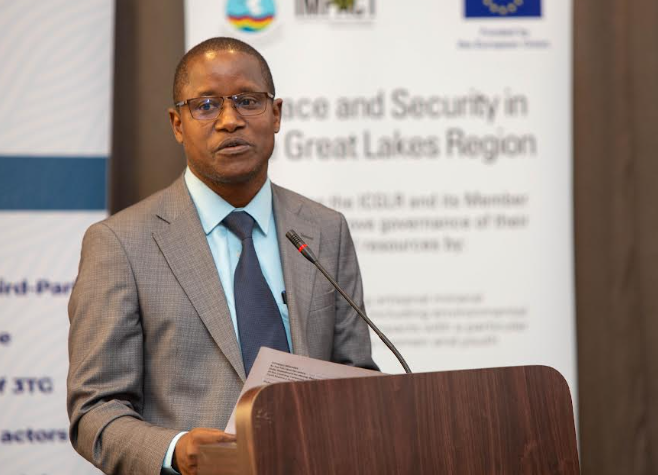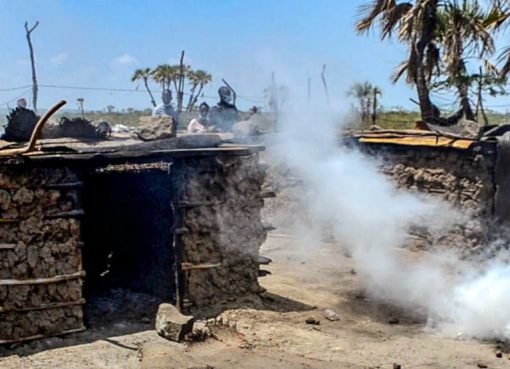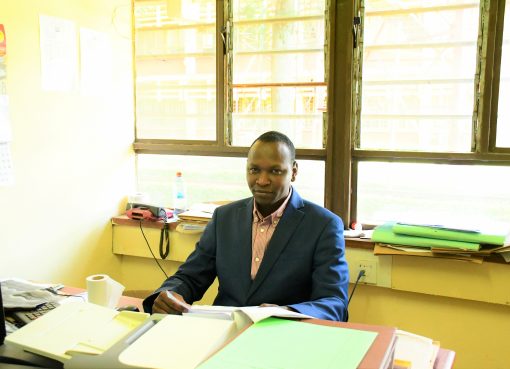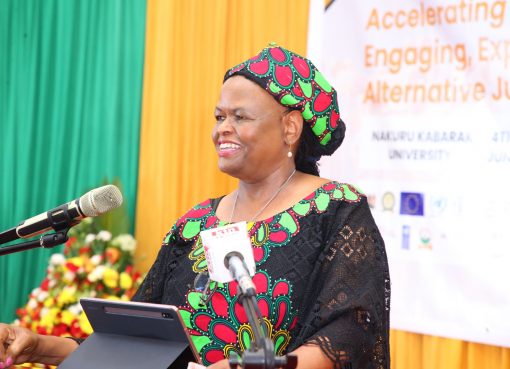Effective exploration of minerals in the Great Lakes Region and curbing the illegal exploitation of natural resources has been touted as a key ingredient in driving economic change and improving the lives of regional citizens.
Mining Principal Secretary (PS) Harry Kimtai said that the Great Lakes Region is richly endowed with 3TG minerals (tin, tantalum, tungsten, and gold) that if well managed can become the backbone of economic transformation.
In a speech read on his behalf by the International Conference on the Great Lakes Region (ICGLR) Audit Committee chairperson Eng. Philip Kirui Kiplangat, Kimtai highlighted that these critical resources have at times fueled conflict, illicit trade and instability and this is why Kenya fully supports the work of the ICGLR and in particular the Regional Certification Mechanism (RCM) under the regional initiative against illegal exploitation of natural resources.
“Kenya is proud to host the 26th meeting of the ICGLR, a critical organ mandated to ensure transparency, accountability and responsible stewardship in the trade of regional vast mineral resources,” said Kimtai.
Additionally, the audit committee plays a crucial role in enhancing auditor capacity and ensuring compliance with internationally recognized standards among supply chain actors.
The PS reaffirmed the Kenyan government’s political goodwill to act and seal all the loopholes, to empower legitimate exporters and to give confidence to international markets that minerals from the region are ethically sourced and transparently traded.
“I commend the ICGLR secretariat, the audit committee and all the stakeholders for their tireless work and want to assure them that Kenya is committed to supporting regional integration, enhancing compliance mechanisms and fostering a mineral sector that is inclusive, transparent and sustainable,” said Kimtai.
On the other hand, ICGLR Deputy Executive Secretary Ambassador Yasir Ibrahim Ali Mohammed said that the Regional Certification Mechanism is vital for the ongoing efforts to combat the illicit exploitation of natural resources in the Great Lakes region and it calls for close collaboration among member states to make it work.
He explained that during their meeting in Nairobi they will be evaluating the progress of activities in Burundi, DRC, Rwanda, Tanzania and Uganda along with other administrative aspects of the audit committee.
“We will be evaluating the finalized audits reports for various member states like the DRC and Uganda and we are planning to identify more areas of audits in DRC, Rwanda and Burundi,” he said.
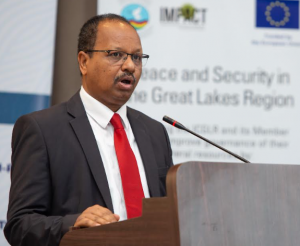
Mohammed said that the audits are a very big achievement in strengthening the Regional Certification Mechanism seeing that it is a core tool of regional initiatives for the fight against illegal exploitation of natural resources.
He detailed that the audits are being carried out by regionally accredited auditors which increases regional ownership and reduces cost.
According to Mohammed, during the first quarter of 2025 training sessions were organized for newly accredited audit firms and mineral exporters from Rwanda, Burundi and Tanzania.
He called on member states who have not yet fully implemented the Regional Certification Mechanism to comply with it and those who are issuing certificates for mineral export to make all necessary steps to ensure that all exporters are duly audited and certified so that they can guarantee the credibility of ICGLR certificates.
The conferences which have been organized in collaboration with GIZ (German Society for International Cooperation) will provide an arena for policymakers, technical experts, and regional stakeholders to assess progress, share best practices, and agree on next steps in implementing the Six Tools against the Illegal Exploitation of Natural Resources (RINR).
By Joseph Ng’ang’a


